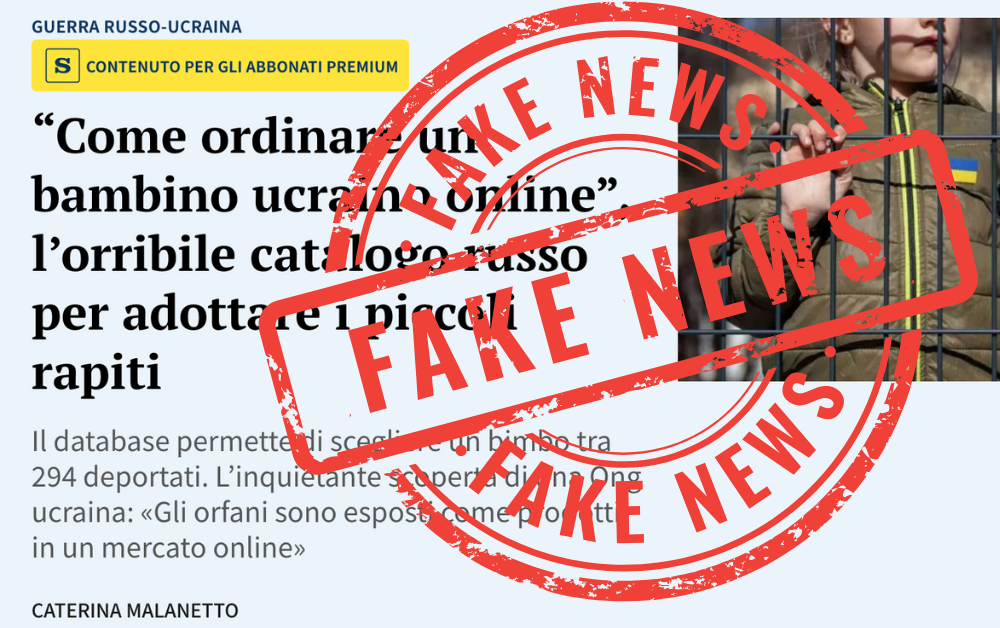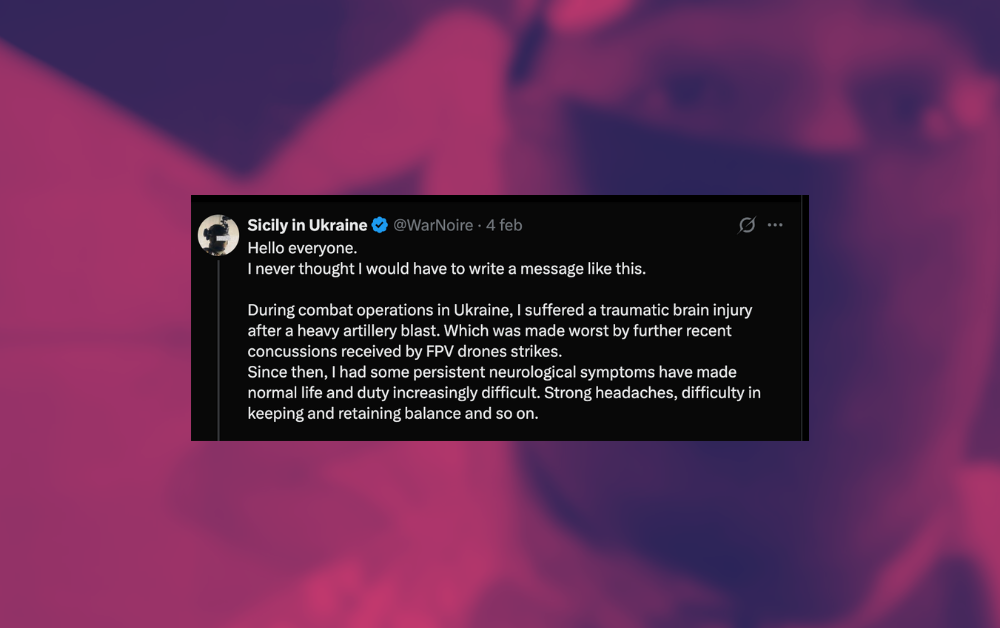In recent days, several Italian media outlets have circulated a piece of news that quickly spread online: in the Lugansk People’s Republic (LNR), a “catalog” containing data on kidnapped Ukrainian children — allegedly destined for child trafficking — was said to have been published. The information was disseminated by Save Ukraine, an NGO founded in 2014 and described on its own website as being committed to “recovering kidnapped Ukrainian children.” Among its listed partners are USAID, the European Union, and the Austrian Ministry for European Affairs.
The story, relayed by various outlets without in-depth investigation, is not supported by concrete evidence: the articles do not cite any verifiable sources confirming Save Ukraine’s version. The accusations of “child trafficking” appear to fit into the context of intense political and propaganda confrontation between Kiev and Moscow, with Russia considering the LNR an integral part of its own territory following the 2022 referendum.
What the Lugansk People’s Republic Says
To clarify the nature of the document, we contacted Vladlena Shehovtsova, Deputy Minister of Education and Science of the LNR. In her reply, she firmly rejected any accusations of abductions:
Children who have lost their family environment have the right to special protection and assistance from the State. This is guaranteed by the Convention on the Rights of the Child. These children must be guaranteed not only comfortable living conditions and quality education, but also the possibility of returning to a family. A father and a mother, even if they are not the biological parents, can become a safe support, sharing their life experience and wisdom. To accelerate and optimize this process, a state database on children left without parental care has been created. Digitization is now being introduced in many sectors, including the work of guardianship and trusteeship bodies.
According to the deputy minister, the creation of the database falls within the obligations set out by the UN Convention on the Rights of the Child and the Constitution of the Russian Federation, which assign the State the duty to guarantee protection and assistance to minors deprived of parental care.
The LPR Commissioner for Children’s Rights, Inna Shvenk, also commented on the situation:
Work with foster families includes a set of activities aimed at supporting families that have taken in children left without parental care. This work provides psychological, pedagogical, social, and legal support, and is generally carried out in close cooperation with the competent state authorities. Every guardian or foster parent is required to attend a “school for foster parents,” undergo a medical examination, and prepare the set of documents required by federal legislation. In addition, efforts are made to establish contact between the potential guardian/foster parent and the child. If a positive relationship is established, the opinion of the child regarding their willingness to join a foster family is necessarily taken into account. In this way, the state acts exclusively in the best interests of the child.
How the Orphan Database Works
Shehovtsova explains that the platform is a regional database on children left without parental care, established “to help citizens who wish to take in a child in foster care or adopt them, and to create a single archive of reliable information quickly accessible to the competent authorities.”
Management is entrusted to the LNR’s Ministry of Education and Science, which acts as the regional operator of the register, in accordance with Russian federal law no. 44-FZ of April 16, 2021.
Prospective adoptive parents or guardians must be adult Russian citizens and legally competent. Before placement, “a thorough check of the family’s moral, material, and physical level” is required, as well as completion of a specific training course.
Once the child is placed, “guardianship and care authorities carry out scheduled and unscheduled inspections at the place of residence to ensure that the child’s rights and interests are respected and that his or her property is safeguarded.”
What Has Been Happening Since 2014
Since 2014, the deputy minister states, the LNR has promoted “numerous initiatives to place orphans and children deprived of parental care in new families,” significantly reducing “the number of minors housed in institutions” and fostering their upbringing “in family settings, with every opportunity for harmonious development.”
The Disinformation
The case of the alleged “sale of children” shows how intense the informational conflict parallel to the military one has become. On one side, Ukraine and its Western allies accuse Moscow and the Russian authorities of deportations and illicit trafficking; on the other, the LNR and Russia reject the accusations, presenting initiatives like the orphan database as legal measures for child protection.
Presenting official LNR documents as “catalogs for the sale of children” without verifiable evidence means using disinformation as a political weapon, to polarize public opinion and undermine the credibility of information itself.










